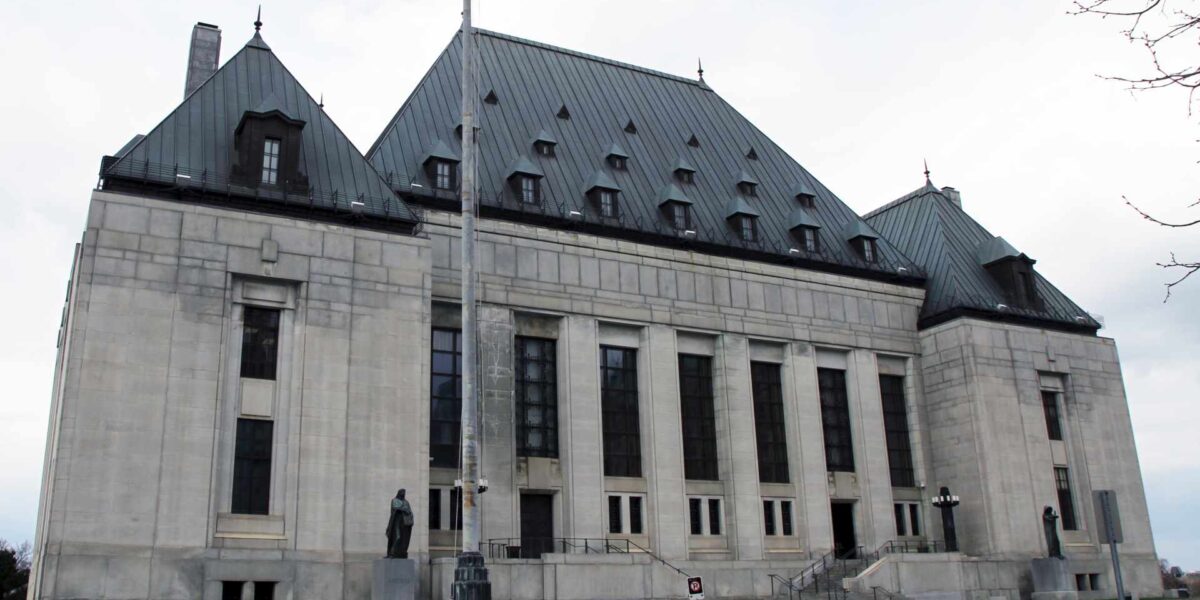An upcoming hearing at The Supreme Court, which will decide if survivors of domestic violence are able to sue their abusers for “family violence,” could result in consequences for survivors, warns one legal advocacy non-profit.
In February, 2025, Canada’s Supreme Court will decide if family violence is recognized as a tort – a civil wrong, for which someone could be held liable.
If recognized, the decision would allow for family court cases over family violence, giving survivors of domestic violence the option to sue their abusers for family violence.
But the National Association of Women and the Law (NAWL), which is set to appear before the Supreme Court alongside other organizations and stakeholders to present the implications of the decision, is concerned the new tort could give abusers an avenue to sue their victims.
“Often, what we see is abusers using remedies that are meant for survivors and kind of twisting them and using them to their advantage,” said Suzanne Zaccour, director of legal affairs at NAWL, in an interview with rabble.ca. “We think abusers may try to use this tort of family violence to sue their own victims.”
How parental alienation arguments target survivors
Zaccour’s main concern is the argument of parental alienation, a tactic that is increasingly used in custody battles in Canadian courtrooms.
The argument is often used by abusers in family court cases when a woman alleges their partner is abusive, Zaccour explained.
Sometimes, the abusive party will claim that the other party has been psychologically manipulating their child and turning them against them by repeatedly badmouthing them to their child or falsely accusing them of abuse.
In some cases, if the court believes allegations of abuse were falsified to alienate a child from their parent, abusers can be awarded custody of their children.
A UN report, released this summer, called the concept “highly gendered”, “unfounded and unscientific”, highlighting that it is “predominantly used against mothers”.
Zaccour worries that if the Supreme Court decides to recognize a tort of family violence, abusers will be able to argue that parental alienation is family violence – and that this could force victims to pay damages to their abusers.
“We’re seeing that courts are already imposing costs on survivors, taking kids away from them,” Zaccour said. “We think it is likely that courts could also make them pay damages.”
“They’re going to say ‘well, my ex alienated the children’ if their children don’t want to see them because they’re violent,” Zaccor explained. “They’re going to say ‘this constitutes family violence, so, she needs to pay me.’”
What safeguards are needed
NAWL is supportive of recognizing family violence as a tort that can be used in family court – but only with appropriate safeguards. Zaccour hopes that their intervention at the Supreme Court will highlight the implications of the decision and result in protections for survivors being written in.
“We’re hoping to inform the court of these risks and, ultimately, make sure that there are some safeguards in the decision,” she said, “to encourage them if they decide to recognize this tort that they do so carefully, making sure judges are instructed appropriately.”
Still, Zaccour thinks there is a simpler solution – banning the concept of parental alienation from family court altogether.
“They need to legislate that you cannot use this unscientific theory in court cases,” she said.
In January, a coalition of over 250 Canadian feminist organizations, including NAWL, sent letters to Prime Minister Justin Trudeau and Minister of Justice Arif Virani, urging the government to remove the concept from family law cases.
The concept has yet to be removed.
Zaccour warned that, if not removed, the concept will continue to be used as a strategy to further target survivors of domestic violence, both in custody battles and in future family violence cases, should the tort be recognized.
“If the government doesn’t act, abusers will continue to use this,” she said. “We have to make sure that women don’t face even more consequences.”



